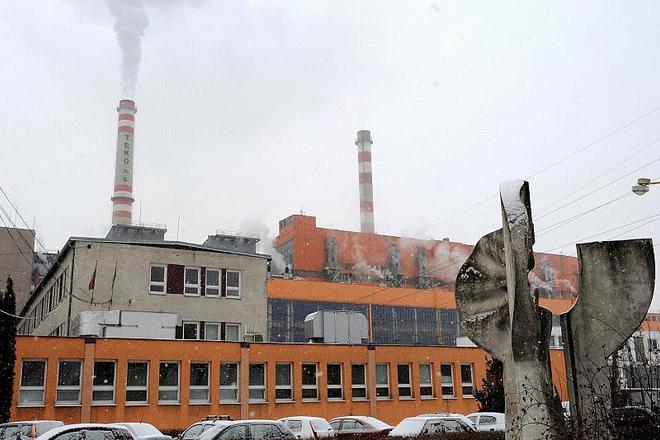PRIVATISATION is a word which touches a raw nerve with the country’s largest opposition party, Smer. But the party’s chairman, Robert Fico, should prepare himself to hear the word much more frequently as the government of Prime Minister Iveta Radičová has made a firm decision to completely privatise six heating companies currently owned by the state.
There are more projects in the works. Another government analysis states that Slovakia could raise almost €1 billion by selling its 49-percent stake in Slovak Telekom to the company's majority shareholder, Deutsche Telekom. Moreover, the state is also exploring the possibility of selling its remaining shares in several bus companies.
The government already knows how it would spend the receipts from privatisation: the money would go towards helping health-care institutions reduce their mountainous debts, and bridge a state pension-financing deficit caused by the launch of the privately managed second pillar of the pension scheme.
“We want to use the revenues very responsibly,” said Radičová, adding that the state would use the proceeds to reduce deficits and debts in these two programmes so that citizens do not have to carry the burden of covering existing debts.
Fico, however, sees the government’s privatisation initiatives through a different prism and called the proposals a fraud on the government’s election promises.
“What mandate does this mash-up [the governing coalition] have to make decisions on the privatisation of such strategic companies as the heating plants?” Fico asked, arguing that before the parliamentary elections Radičová announced that she would not support the privatisation of any strategic enterprises.
The heating plants are located in Bratislava, Trnava, Žilina, Martin, Zvolen and Košice.
Slovakia’s National Property Fund (FNM), the state’s privatisation agency and holder of shares in many state-owned companies, wrote in its analysis that it supported the sale of the heating companies, citing a long-term decline in the volume of heat sold and a corollary drop in profitability.
The FNM also stated that there was a clear need for additional investment to make the heating plants more environmentally-friendly and reduce their debts.
The FNM assessed the total market value of the six heating plants at between €160 million and €200 million. Dividends from the six companies have brought the state around €4.2 million annually in recent years.
Firms will not go to cities
The cabinet’s final decision has dashed the hopes of some of the municipalities of obtaining shares in the heating firms. Earlier this year, the Union of Towns and Cities of Slovakia (Únia miest Slovenska, or UMS) stated that the cities the heating firms serve should be allowed to obtain either 100 percent, a 51-percent majority share, or at least a minority share in the companies.
“Heating production is unambiguously a business of local importance, which means that it is not a strategic property and it can be successfully developed only when it is intertwined, in terms of property, with the municipalities,” Marián Minarovič, the chairman of UMS wrote in an earlier statement.
The state government said that having regional or municipal governments involved would complicate the process of privatisation and it does not see any price-related rationale for selling or transferring state-owned shares to cities or regions.
“There's no link between the cost for heat and ownership structure,” Radičová said, as quoted by TASR, adding that “the heating companies are in need of investments of approximately €760 million. We're facing commitments towards the EU to utilise new technologies and innovations. Municipalities would have to go through a conundrum in finding new financial resources.”
The state government also argued that there had been negative experiences in the past in transferring ownership stakes to municipalities.
The process of selling the heating plants is expected to begin in the second half of the year when a privatisation adviser is selected. Potential investors might be asked to submit bids in March 2012, the SITA newswire reported.
Telekom is no longer 'strategic'
The cabinet on March 23 also reviewed an analysis jointly prepared by the Finance Ministry and the FNM concerning an eventual sale of the state’s 49-percent stake in Slovak Telekom (ST), perhaps to its majority shareholder, Deutsche Telekom.
“Slovak Telekom is no longer a natural monopoly or a strategic company,” Finance Minister Ivan Mikloš stated, as quoted by the Sme daily.
The FNM stated that the government would not receive more from dividends than from the actual sale of its ownership stake in ST and that the sale of the 49-percent stake could be completed by the autumn of 2012.
The state is considering two options for selling its shares in ST: the first is an international tender with all the state’s shares being sold as a block, giving Deutsche Telekom an option to achieve 100-percent ownership. The other option is to sell the state-owned shares in the capital market, a process which would result in many smaller shareholders.
“That could aid the development of the stock market, as we expect these stocks to be listed on the Bratislava securities exchange,” Mikloš said, as quoted by TASR.



 Košice's heating plant will be among those sold. (source: TASR)
Košice's heating plant will be among those sold. (source: TASR)